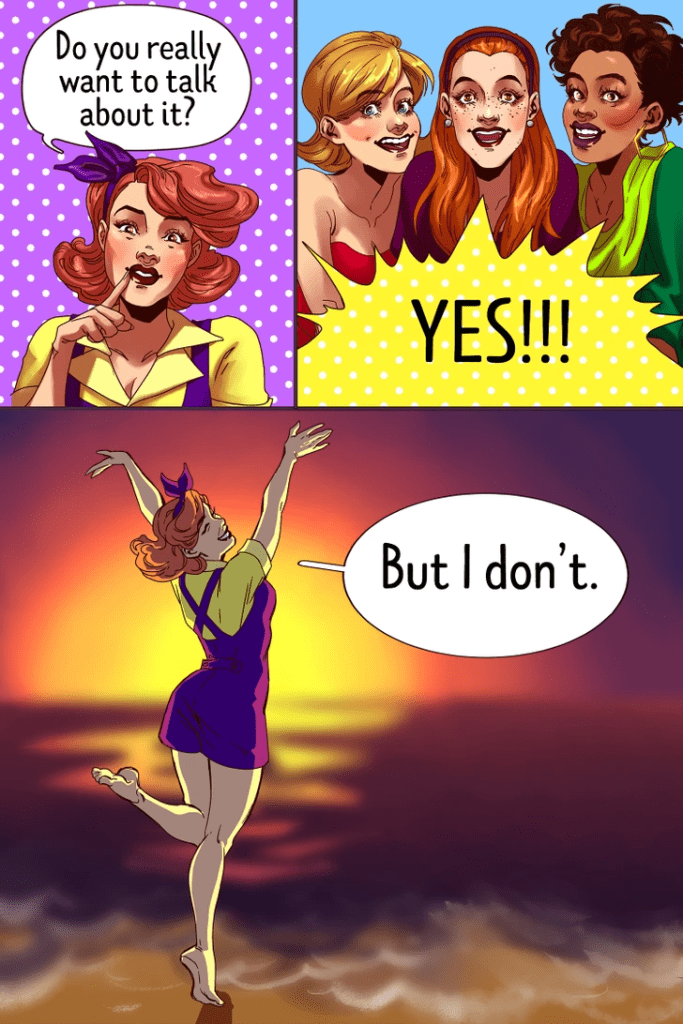
We’ve all faced it. Someone—usually a bit too familiar—blurts out a question that crosses a line. Maybe it’s about your weight. Maybe it’s about your relationship. Or worse, your finances. And just like that, you’re stuck in the middle of a conversation you never asked for.
It could be your aunt at the dinner table. A co-worker at lunch. Even a friend who should know better. These questions hit differently when they’re personal, uninvited, and just plain rude. But here’s the good news: you don’t have to take it silently. There are smart, calm, and even funny ways to respond without starting a drama.
Video: 6 Verbal Tricks To Make An Aggressive Person Sorry
Why People Ask Rude Questions in the First Place
Let’s call it what it is: insecurity, bad manners, or just plain nosiness. Some folks like to stir the pot because it gives them a sense of control or superiority. Others simply lack social awareness.

And yes, sometimes, it’s envy—disguised as “concern.”
But whatever the motive, you’re not obligated to sacrifice your peace of mind to be polite. Let’s talk about how to draw a line—without sounding harsh or defensive.
Use Humor to Disarm and Distract
One of the most effective tools in your response kit? Humor. It’s light, quick, and often leaves the questioner too baffled to keep pressing.

Example:
Q: “Why don’t you have kids yet?”
A: “Still waiting for NASA to launch a perfect parenting manual.”
You send a message and keep things fun—without giving them what they want: a detailed explanation.
Ask “Why Do You Ask?” to Turn the Tables
Flipping the script is subtle, but powerful. You force the person to reflect on why they’re digging.

Example:
Q: “How much do you pay for your rent?”
A: “Why do you ask?”
It’s polite—but it also puts them on the defensive, where they probably should’ve started.
Video: THIS Is How You Deal With INSULTS
Deflect With a Smile and Change the Subject
You don’t owe anyone your vulnerability. Smile, nod, and steer the convo somewhere else.

Example:
Q: “Are you pregnant?”
A: “Just full of pizza—and speaking of food, did you try the dessert table?”
Quick, kind, and avoids conflict.
Use the “Silly Answer” Tactic to Diffuse Pressure
Sometimes, a playful, exaggerated response shuts the whole thing down.

Example:
Q: “You’re too old for that outfit, don’t you think?”
A: “I know, right? I should’ve worn a medieval gown and a bonnet!”
You keep the tone fun but make your point. You don’t need their fashion policing.
Be Direct—But Only When You Want To
If someone’s crossing serious lines, it’s okay to be honest. Keep it short, and don’t over-explain.

Example:
Q: “Why are you still single?”
A: “Because I haven’t met someone worth changing that for.”
Boom. Clear and clean.
Video: How To Make A Disrespectful Person Look Insecure For Insulting You
Handle Family With Care—But Don’t Let Them Off the Hook
Relatives can be the worst offenders. They believe familiarity gives them free rein. But it doesn’t.

Example:
Q: “When will you get a ‘real’ job?”
A: “When it stops making me happy, I’ll let you know.”
You don’t have to argue. Just affirm your choices.
Play It Off With Irony If You’re Feeling Sassy
Irony is a powerful way to shield your emotions while still making a point.

Example:
Q: “Shouldn’t you be married by now?”
A: “Yes, I’m horribly behind schedule. The wedding committee is furious.”
It’s funny, sarcastic, and sends a not-so-subtle message.
Know When to Say Nothing at All
Sometimes silence is the best response. If the question is too personal, offensive, or inappropriate, don’t feel obligated to answer.
Just smile. Or walk away. You have the right to protect your boundaries without saying a word.

Create a Go-To Response for Repeat Offenders
If someone in your life consistently asks rude stuff, create a “template” answer that sets the tone.
Example:
“Thanks for asking, but I don’t really talk about that.”
Short. Polite. Final.
Here’s the bottom line: you don’t owe anyone a window into your personal life. Whether it’s an offhand remark or an intrusive question, you’re allowed to respond in whatever way protects your mental and emotional space.
Humor, silence, sarcasm, or honesty—it’s your choice. What matters is that you never feel forced to give away more of yourself than you want to.
So next time someone crosses the line, smile, take a breath, and remember—you’re in control.


